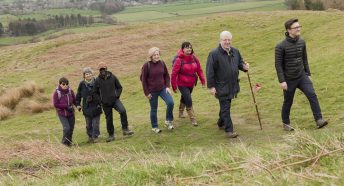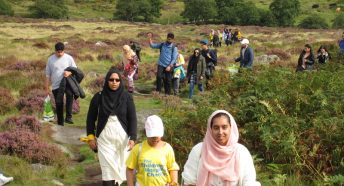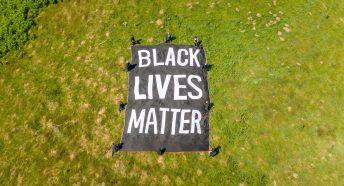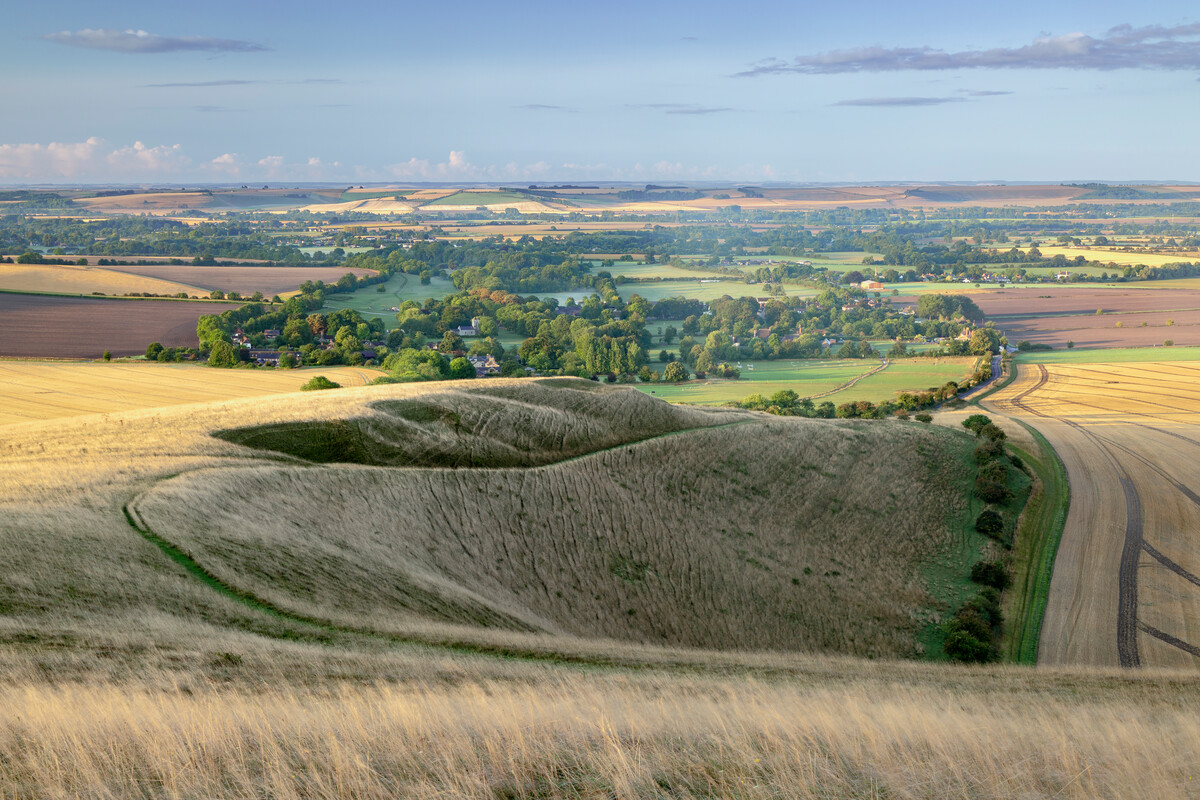Seeing the people in the picture: what I’ve learned from CPRE’s ‘access to the countryside for people of colour’ research project
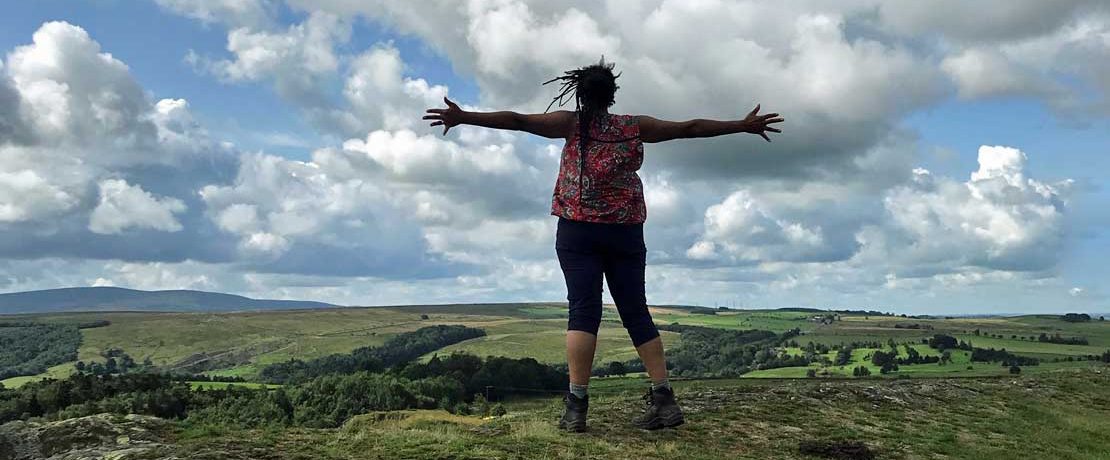
Our director of campaigns and policy, Tom Fyans, unpacks his learning from new research into the experiences of the countryside for people of colour.
Last year marked the start of CPRE’s new strategy. A core part of this new plan was to ‘connect people and countryside’: developing a programme of work that helps more people connect to the countryside and challenges some of the barriers that make it inaccessible to some.
Driving this aim is the knowledge that for many people, the countryside – with all its wonders and health and wellbeing benefits – feels like a luxury they can’t access. Research shows huge differences in engagement with nature and the countryside dependent on people’s backgrounds, race and identities. The starkest inequalities exist based on race, with children from a Black, Asian or minority ethnic background half as likely to visit the countryside as White children.
We want to understand these issues further
At CPRE, we want to understand these issues further to explore the complex situation around these inequalities and see how we can support greater and more equal access to the countryside. That’s why in 2020, we commissioned research looking at access to nature for people of colour that explored related issues of income, class, gender and disabilities. You can read the full research overview here.
Not only was this research topic new to us but so was the approach. Facilitated by the New Economics Foundation (NEF), this research took a peer-led approach. Instead of employing a team of research specialists working for NEF, the research team was made up of people with ‘lived experience’ of the topic.
The researchers, all people of colour with an interest in the issues surrounding access to the countryside, interviewed their peers and networks to explore what access to nature and the countryside meant – and why inequalities might exist.
What was captured through this process were rich, detailed experiences and stories.
We’ve shared some of these stories and an overview of the research project on our website. But we also want to share some of our learning and reflections from the journey that the research took CPRE on. This exploration is just a snapshot of some of the discussions we’ve been having here since this project – and discussions, listening and learning will continue. We know they need to.
We believe that, alongside the stories from the researchers themselves, the research findings will catalyse further exploration and thoughts from you the reader, our sector partners and the CPRE network of local groups.
Learning one: stepping back is crucial – and hard
Stepping back and having the research designed, guided and carried out by people with direct experience of the topic made it a much deeper dive into some of the difficult and personal experiences of barriers to exploring the countryside, as the stories show. For us, it also brought a lot of learning about how we work – or how we should work – around inclusion.
But stepping back and just listening is not something that we as an organisation seeking to promote our causes or campaigns are used to. In fact, our usual instinct when campaigning is to step up, be loud, drive forward, stand firm.
Through this project, we learned the value of moving at the pace of trust – a phrase we learned from one of the researchers. It’s brilliant advice that’s often stated by racial justice activists (including in adrienne maree brown’s ‘Emergent Strategy’).
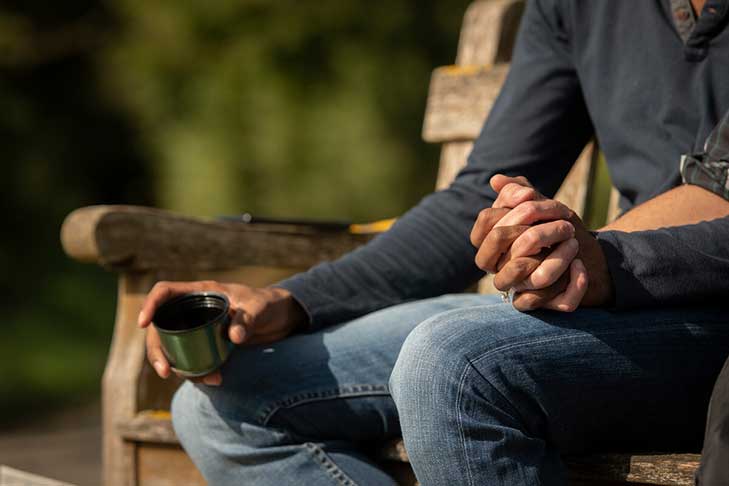
Gaining that trust is no mean feat when you consider that the environment and conservation sectors, of which we’re part, are the UK’s second least diverse workforce in terms of race.
Understandably, this has created deep mistrust and disconnection between our sector and some people and communities of colour.
In practical terms, moving at the pace of trust means trying to put aside the usual timescales and patterns for how we ‘launch’ and present research and projects. These are ways of working we’ve developed that fit for our default, habitual ways of doing things – but those approaches assume that the trust is already in place.
If we’re going to truly work with marginalised groups and communities of colour to ensure the countryside is more welcoming, we need to find shared approaches, founded on trust – and to earn that trust.
Learning two: nature connectedness is not the same as countryside connectedness
‘The countryside’ is a difficult concept to define. It includes landscapes, communities, economies and homes. Each of us carries our own vision of what the countryside means to us.
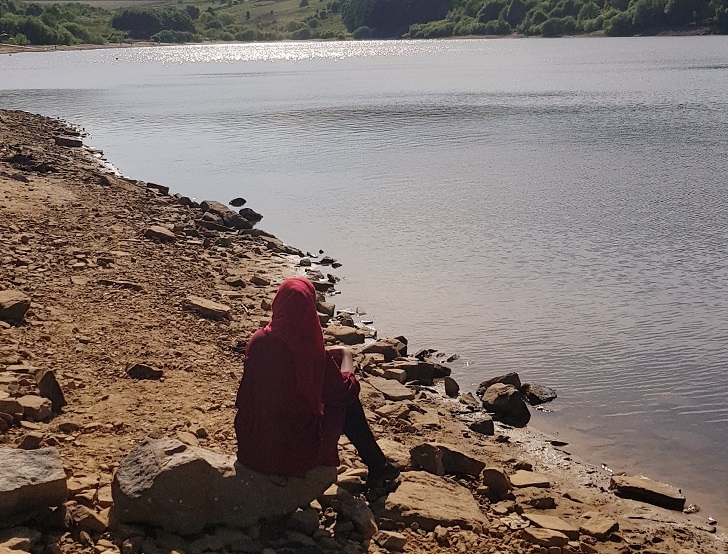
And in our line of work, it’s too easy to conflate a connection to the countryside with a connection to nature. This research has shown us the importance of understanding the distinct differences.
Connections to, and understanding of, the health and wellbeing benefits of nature come through strongly in the stories and experiences shared. But ‘the countryside’ is different.
Migrant communities often have deep connections to nature and the outdoors from their countries of origin, but that doesn’t necessarily translate into visiting, engaging with, feeling welcome in or connected to the countryside.
In Frederique Lanoix’s podcast episodes, we hear directly from her guests about their rich connections to nature. There are detailed descriptions of wildlife and of how central nature is in their lives for wellbeing and culture. There is little to no mention of countryside.
Maxwell Ayamba too, in his summary of his ethnographic research, highlights the very strong connections with nature that the Pakistani community in Sheffield he walks with had before they migrated. Maxwell describes how the ‘participants narrated how the majority of Pakistani families in Sheffield were from the rural countryside but lost this cultural connection to the countryside due to migration.’
We have to ask ourselves and consider why this is. There is so much that could be gained from cross-cultural exploration of, knowledge sharing and discussions on the countryside.
Learning three: lived experience puts people in the picture
Over the past few years at CPRE, we’ve been focusing more on the ‘why’ of our work: getting to grips with the personal and human aspect of the ‘for the benefit of the nation’ element of our charitable objective.
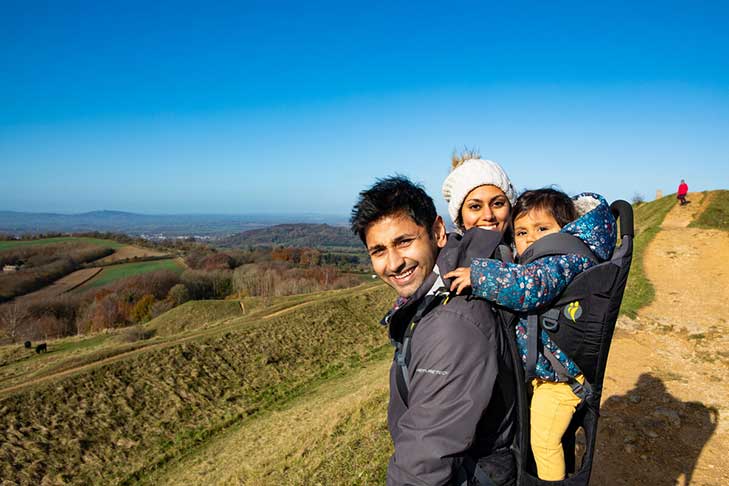
This research project showed the power of truly listening to a range of lived experiences to make sure we put people front and centre in our work. To some, this may be stating the obvious – but, like many charities with an environmental focus, it can be hard to show our human impact.
The stories and work that Maxwell, Sarah, Frederique, Sheree and Serayna shared, as well as the work by the other researchers along the way, and the honesty from the participants about their lived experience bring to life the complex situation around inequalities in access to the countryside in a way that statistics and graphs never could. We need to do more of this detailed, listening research.
Learning four: a sector ready for change
My final reflection is perhaps a hope, more than a solid learning.
After many flickering moments over the past few decades when the environment sector has shown an interest in becoming more diverse, and issues of access to the countryside for Black people and people of colour have bubbled up the agenda, it feels as though our sector may be primed for real change at last. At CPRE, at least, we believe that we are.
We’ve been open with our sector colleagues about the difficult but important journey we’ve been on and what we’ve learned, and there’s been a huge amount of interest in hearing more. We’ve also learned a lot from the work and generous sharing of others in the sector, and this leaning on each other through the journey ensures we’re not relying on the marginalised to carry the load of this work.
From cross-sector meetings, to private discussions with the Secretary of State for Environment with the researchers and senior civil servants, from working groups and one-to-one conversations with other organisations, there are now many places where discussions on diversity in the outdoors and connections with nature and the countryside are happening (although it’s clear there’s a lot of catching up to do, particularly from decision-makers, to understand and value lived experience for the essential expertise it provides in these discussions).
Common across all of them is a realisation that Black people and people of colour, as well as people with disabilities and on lower incomes, simply won’t feel welcome in our sector or the places we seek to work and care for if we don’t change how we work. The status quo cannot continue.
A readiness to change that is palpable – within and beyond CPRE – but it won’t be an easy journey. I hope by working together with everyone who makes up CPRE, from staff and volunteers to members and supporters, as well as with our sector colleagues, we can face that challenge and stick with it through the ups and the downs.
The goal for us is a countryside for all – and that’s too important for us to falter.
Our next steps for our ‘Countryside for all’ work – of which this research is a core part – will focus on building a co-created, multi-year initiative that works to make the countryside more welcoming.
To do this we’ll be working with representatives and activists working on countryside access for people of colour, people with disabilities, people from lower-income backgrounds and young people.
We’ll keep sharing learnings and insights along the way so that we can go on this journey together. If you’re interested in this work, please get in contact with Maddy Haughton-Boakes, our campaigns manager, at MaddyH@cpre.org.uk.





